Eggs do a lot in baking - hold ingredients together, add moisture, and help treats rise. But you don’t need eggs to bake something wonderful.
Whatever your reason is - being vegan, dealing with an egg allergy, trying to be more sustainable, or just running out of eggs mid-recipe - there's a simple swap for that. The best part: Most of the plant-based and vegan egg substitutes are a straightforward switch for staples you probably already have in your pantry.
Let us take you through 17 vegan substitutes for eggs that work for whipping up fluffy pancakes, gooey brownies, or your favorite muffins, totally egg-free, without losing any of the egg benefits.
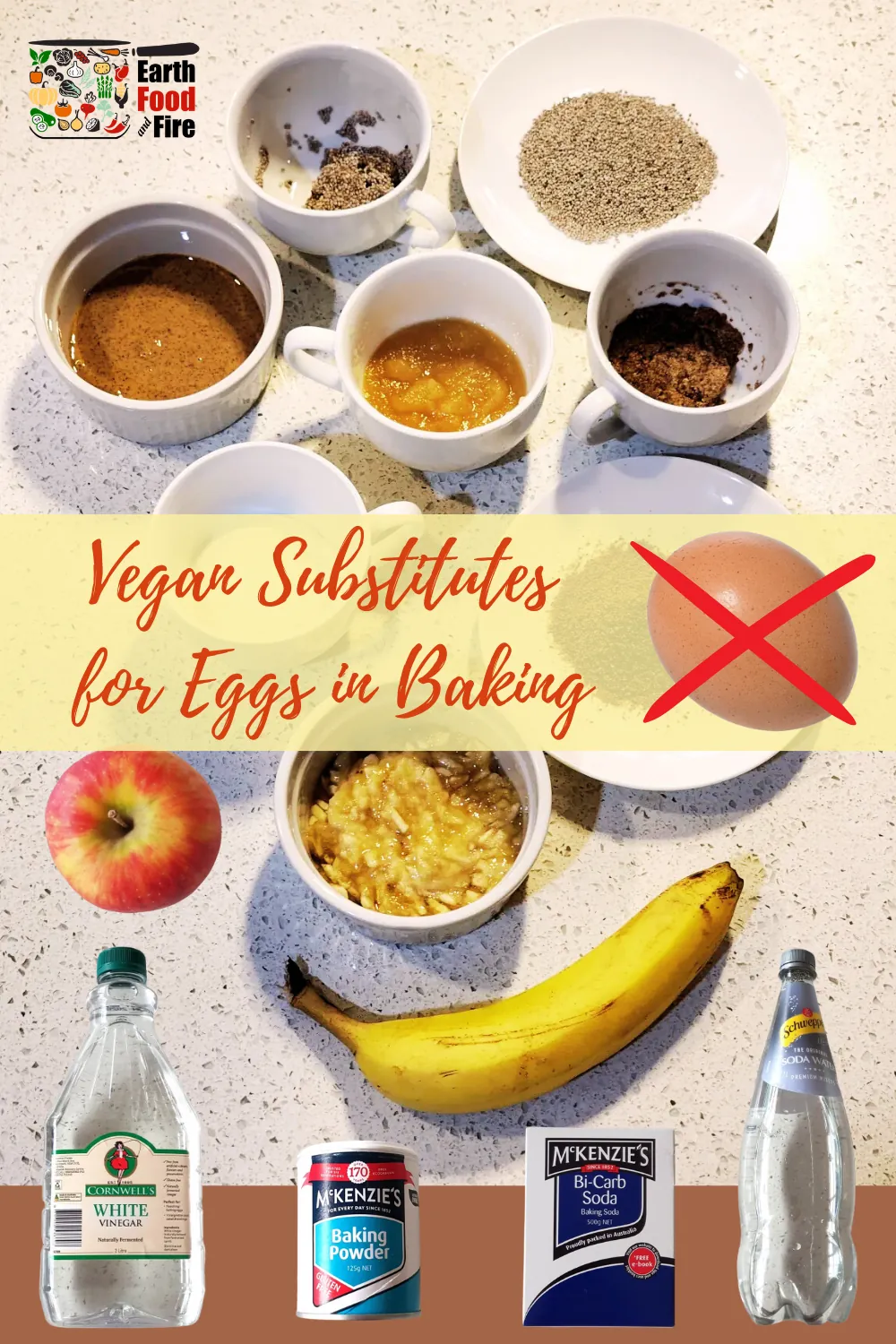
This post contains affiliate links for which we may be compensated if a purchase is made through the links provided at no extra cost to you. For more information, please read our affiliate disclosure.
On this page:
Why We Use Eggs in Baking
Before we get into the vegan egg substitutes, let's understand what eggs actually do in a baking recipe. Eggs are multitasking powerhouses that affect the final texture, structure, and flavor of your baked goods:
1. Eggs Bind Ingredients Together
Eggs help hold ingredients in place, giving structure to everything from cookies to quick breads. This “glue-like” quality is essential for preventing crumbly or fragile baked goods.
2. Eggs Help Leavening (Rise Baked Goods)
In recipes like cakes and muffins, eggs, particularly beaten egg whites, trap air. This expands your dough during baking, helping your treats rise and creating a light, fluffy texture.
3. Eggs Add Moisture and Richness
Eggs also contribute moisture and fat, which make baked goods tender and flavorful. They prevent dryness, especially in recipes with long bake times.
Is There a Single Vegan Substitute For Eggs That Works in Every Recipe?
Unfortunately, since eggs do so many things at once, there aren't many one-size-fits-all vegan substitutes for eggs. Some ingredients are great at binding, while others add moisture or aid with leavening, but they rarely do all three.
The best egg alternative depends on what role the egg is playing in your recipe. That’s why having a variety of options (and knowing when to use them) is key to successful baking without eggs.
Top 17 Vegan Substitutes for Eggs in Baking
When it comes to swapping out eggs in your favorite recipes, you don’t need anything fancy. Many of the best vegan egg substitutes are made from simple plant-based ingredients you likely already have in your kitchen.
Below, you’ll find the top alternatives - each with its own strengths, best uses, and easy substitution ratios.
1. Flax Egg
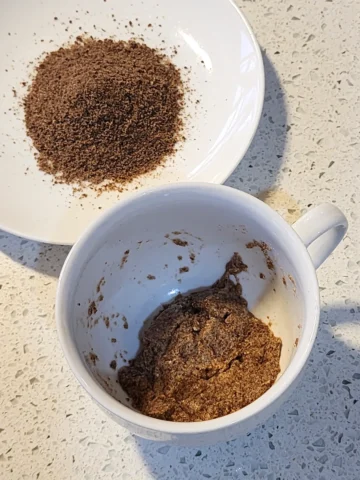
Ratio: 1 tablespoon ground flaxseed (flax meal) + 3 tablespoons water = 1 egg
Flaxseeds are one of the most popular vegan egg substitutes. When mixed with water and left to sit for about 10 minutes, ground flaxseed forms a gel that mimics the binding power of an egg.
Tip: Use freshly ground flaxseed for the best texture and binding power.
Try it in: Pumpkin Breakfast Muffins 🎃
2. Chia Egg
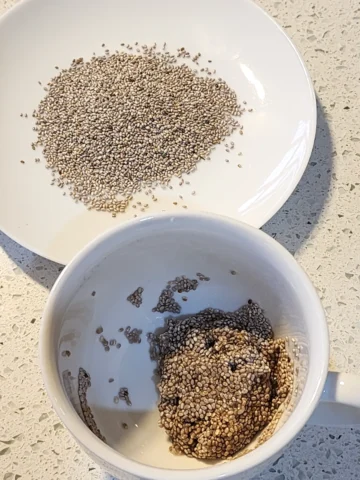
Ratio: 1 tablespoon chia seeds + 3 tablespoons water = 1 egg
Similar to flaxseed, and as easy to get, chia seeds also provide a gel-like texture that helps bind ingredients. Mix one tablespoon of chia seeds with three tablespoons of water and let it sit for about 10 minutes.
Tip: For a smoother texture, use ground chia seeds.
Try it in: Blueberry Bran Muffins 🫐
3. Applesauce
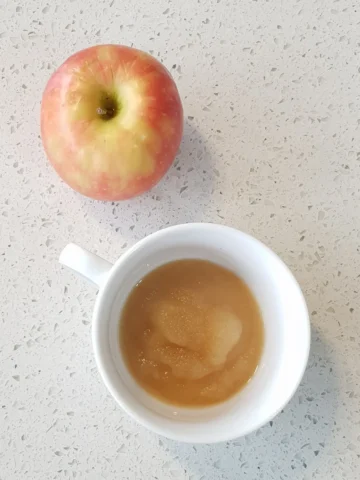
Ratio: 4 tablespoons or ¼ cup = 1 egg
Unsweetened applesauce adds moisture and mild sweetness to baked goods, making it a great egg-free option for softer, denser treats.
Try it in: The Best Vegan-Friendly Cornbread 🌽
Make your own: Instant Pot Applesauce Recipe
Instant Pot Applesauce (No Added Sugar)

4. Mashed Banana
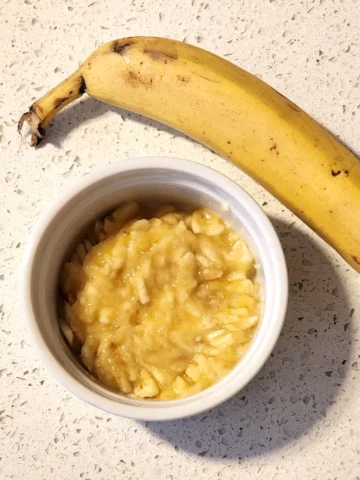
Ratio: 4 tablespoons or ¼ cup (about half of a large banana) = 1 egg
Mashed banana acts much like applesauce by adding moisture and natural sweetness. Just keep in mind that it does add banana flavor too, which works best in recipes that complement it.
Tip: Go for an overripe banana to add more flavor and sweetness or natural sugar.
Try it in: Homemade Pancakes 🥞
5. Yogurt (Plant-Based or Regular for Non-Vegan)

Ratio: 4 tablespoons or ¼ cup (60g) = 1 egg
Plain yogurt (like Greek style) adds moisture and a slight tang. Plant-based yogurts like coconut or almond yogurt work well for vegan baking.
Tip: Avoid flavored yogurts unless they match your recipe.
Try it in: German Raisin Bread 🍇
6. Nut Butters (Peanut, Almond, Cashew)
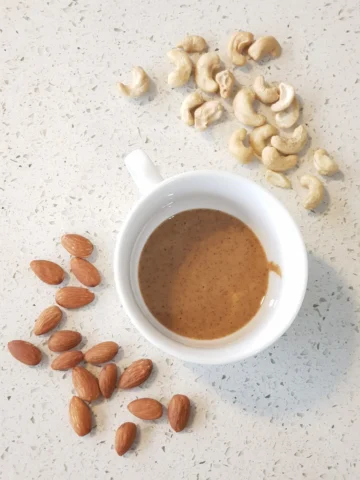
Ratio: 2 tablespoons = 1 egg
Nut butters bind ingredients and add richness, though they can slightly alter flavor and texture. Choose smooth varieties for the best results.
Tip: Use Sunbutter (sunflower seed butter) if you have an allergy to nuts.
7. Pumpkin Puree
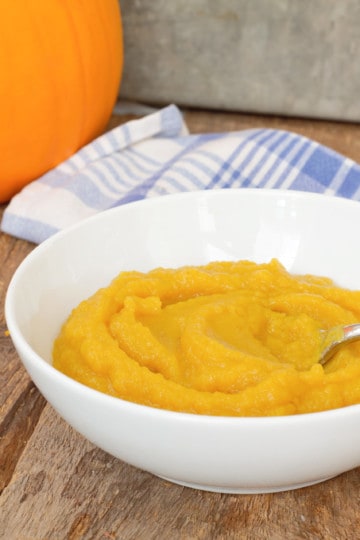
Ratio: 4 tablespoons or ¼ cup = 1 egg
Pumpkin puree adds thickness, moisture, and subtle sweetness. It's especially good in fall-themed treats or recipes that benefit from its earthy flavor.
Make your own: Homemade Pumpkin Puree Recipe
Homemade Pumpkin Puree
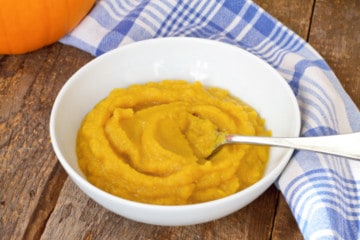
8. Silken Tofu
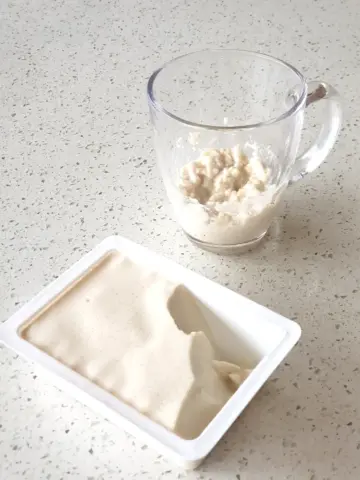
Ratio: 4 tablespoons or ¼ cup blended = 1 egg
Blended silken tofu is flavor-neutral and provides excellent moisture and structure, especially in dense or creamy desserts.
Tip: No need to press it, just drain the water from the package. Blend until completely smooth to avoid lumps.
9. Aquafaba
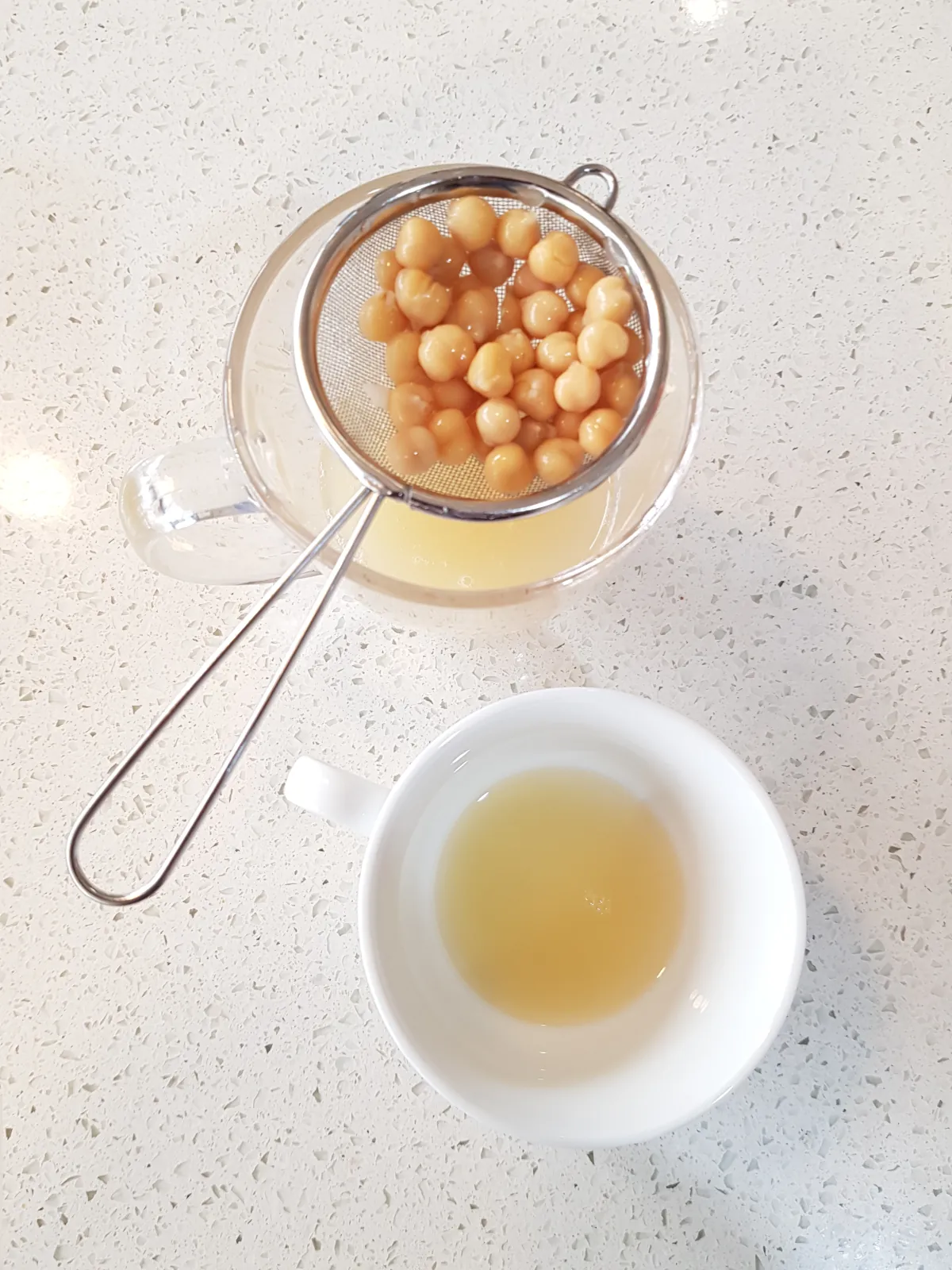
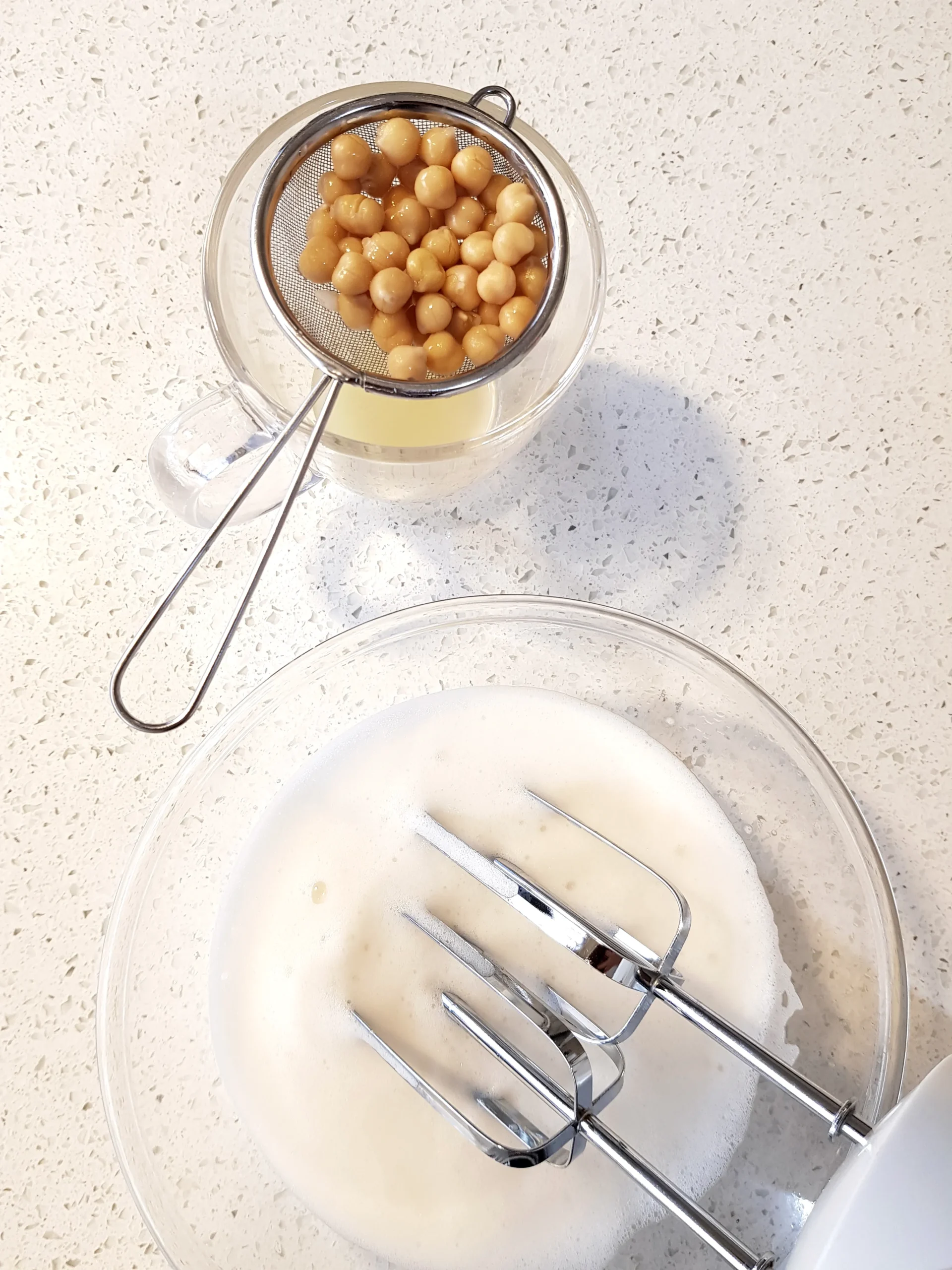
Ratios: 3 tablespoons = 1 whole egg, or 1 tablespoon = 1 egg yolk, 2 tablespoons = 1 egg white
Aquafaba is the liquid from canned chickpeas, and when whipped up, it acts much like whipped egg whites. It can be used to create airy textures or used straight for moisture and binding.
Tip: Strain the chickpea liquid and beat it for a fluffy "no-egg white".
Try it in: Chocolate Meringue Cookies 🍥
10. Chickpea Flour Egg
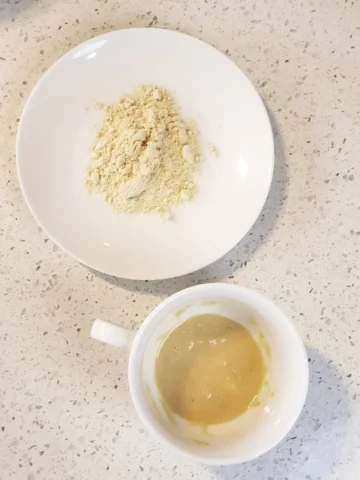
Ratio: 2 tablespoons chickpea flour + 2 tablespoons water or non-dairy milk = 1 egg
Chickpea flour makes a rich, creamy egg replacement that adds structure and depth. Let the mixture sit for 5 minutes to thicken. You can also add 1 teaspoon of oil for extra richness.
For recipes that call for an extra-large egg, increase to 4 tablespoons each of chickpea flour and liquid.
Tip: Use non-dairy milk instead of water to boost flavor and texture.
11. Psyllium Egg
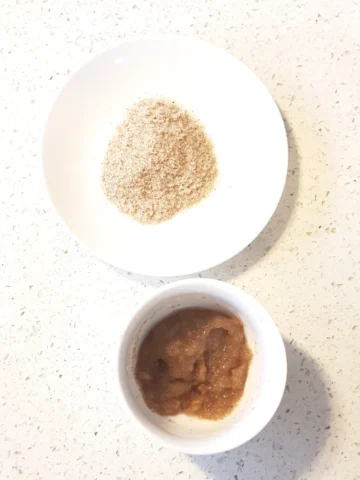
Ratio: 1 tablespoon psyllium husk + 3 tablespoons water = 1 egg
Psyllium husk forms a gel-like texture that’s excellent for holding baked goods together. After mixing, let it sit for a few minutes to fully thicken.
Tip: Use psyllium powder for a smoother texture if desired.
12. Starch Egg (Potato or Arrowroot)
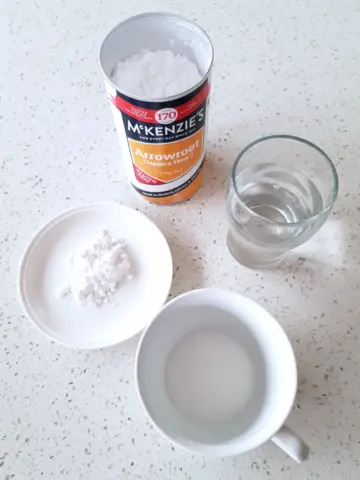
Ratio: 1 tablespoon starch + 3 tablespoons water = 1 egg
Mix until smooth and slightly thickened. Add one teaspoon of oil for extra richness, especially for creamy or custard-based dishes.
Tip: Use arrowroot for a silkier texture. Potato starch gives a denser finish.
Try it in: Pumpkin pie 🥧
13. Oat Egg
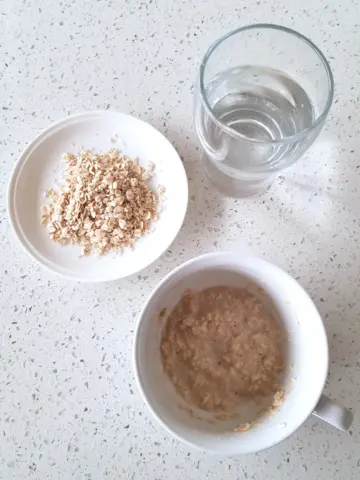
Ratio: 2 tablespoons oat flakes + 3 tablespoons boiling hot water = 1 egg
Stir well and let it thicken until cool. Use as-is or blend for a smoother consistency. Oats have a mild flavor and help with binding and moisture.
Tip: Rolled oats work best. Avoid instant oats to get more structure.
Try it in: Blueberry bran muffins 🫐
14. Baking Soda + Vinegar

Ratio: 1 teaspoon baking soda (also known as bi-carb soda) + 1 tablespoon vinegar + 1 tablespoon water = 1 egg
This fizzy combo has a leavening effect, perfect for light, airy bakes. Use white or apple cider vinegar, or even lemon juice.
Tip: Mix and use immediately to capture the full rise!
15. Baking Powder + Oil Egg Replacement
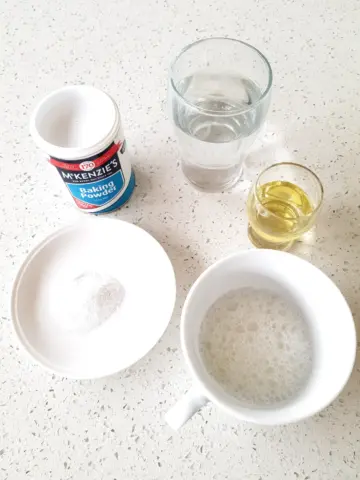
Ratio: 1 teaspoon oil + 2 teaspoons baking powder + 2 tablespoons water = 1 egg
A reliable egg replacement for quick breads and cakes when you need leavening and moisture in one go.
Tip: Great in recipes with other binders like bananas or flax.
16. Carbonated Water Egg Replacement

Ratio: ¼ cup (60 ml) carbonated water = 1 egg
Cold sparkling water adds lift and moisture without affecting flavor. Use it right away for the best results.
Tip: This swap works best when eggs are used for leavening, not binding.
17. Commercial Egg Alternative: Bob's Red Mill Egg Replacer
Ratio: Follow package directions (typically 1.5-2 teaspoon + water = 1 egg)
Brands like Bob’s Red Mill and Ener-G offer powdered egg replacers designed for baking. These are convenient, reliable, and shelf-stable.
Best for: All-purpose convenience, backup egg replacement with long shelf life
Bonus: Many commercial egg alternatives are also gluten-free and allergen-friendly.
Choose the Right Egg Substitute for Your Recipe
With so many vegan egg alternatives available, how do you pick the right one? Here is a short checklist to help you choose:
Match the Function
Understand what the egg is doing in your specific recipe, as different egg substitutes work best for different baking uses:
- For Binding: Use flax eggs, chia eggs, silken tofu, or nut butters. These help hold your ingredients together without affecting the structure too much.
- For Moisture: Applesauce, mashed banana, pumpkin puree, and yogurt all provide great moisture, especially in cakes and quick breads.
- For Leavening (Dough Lift): Aquafaba, soda water, baking soda and vinegar, or baking powder with oil all work best when you need airiness or rise, like in cakes, muffins, or soufflés.
- For Creaminess and Richness: Silken tofu and yogurt add body and a velvety texture, ideal for custards, cheesecakes, or dense brownies. Nut butters are a great way to add some extra flavor.
- Long shelf life: Commercial egg replacers are your one-stop solution for when you run out of eggs, as they last long in the pantry as an emergency substitute. From the plant-based solutions, flax seeds or chia seeds store well, too.
Consider Flavor
Some substitutes, such as banana, pumpkin, or nut butters, bring their own unique taste to the party. If your recipe has subtle or delicate flavors, opt for more neutral options like flax seeds, chia seeds, or silken tofu.
Watch the Texture
For crisp cookies, flax eggs, chia seeds, Psyllium husk powder, or chickpea flour work well. For soft and moist baked goods, try applesauce or banana. Want something dense and fudgy? Silken tofu or pumpkin puree will do the trick.
Start Simple
If you’re unsure, flaxseed eggs are a solid starting point for most recipes. There is a reason they are the first on our list. As you get more comfortable, try other vegan substitutes for eggs.
Once you are comfortable, you can mix and match the egg replacements based on what works best for your desired result.
How Many Eggs Can Be Substituted In Baking?
Most vegan egg substitutes work best for replacing up to 2 eggs in a recipe. For recipes requiring three or more eggs, expect to experiment a bit and adjust for optimal texture and structure:
- Add a pinch of baking powder for extra lift, especially in cakes
- Adjust the amount of liquid in the recipe if using purees, aquafaba, or soda water, as they already add moisture and water.
Also, when needing more than three eggs, try combining several vegan substitutes for eggs to make the most of their different properties. Here are a few combinations to get you started:
Sample Vegan Egg Substitute Combinations
Combination | Why It Works |
|---|---|
“Flaxafaba” Flax/Chia Egg + Aquafaba | Flax or chia eggs provide binding + Aquafaba adds moisture, rise, and structure |
Silken Tofu + Flax/Chia Egg | Silken tofu gives structure and moisture + flax/chia eggs help bind |
Aquafaba + Fruit/Vegetable Purees | Aquafaba mimics egg whites for lift + purees (pumpkin, banana) add moisture and binding |
Tip: Adjust ratios and combinations based on your specific recipe and desired texture. You might need to do some experimentation for the best results!
Tips for Baking Without Eggs
Successfully baking without eggs takes a little practice, but once you understand how different substitutes behave, it becomes second nature. Here are a few helpful tips to ensure your vegan bakes turn out delicious every time:
✔ Start With Simple Recipes
Begin with simple recipes like pancakes, muffins, or cookies, which use just one or two eggs. These are more forgiving and a great way to test different egg alternatives.
✔ Stick to One Substitute to Learn
While mixing egg substitutes is great when three or more eggs are needed, it takes practice and experimentation. Make your life easier at the start by sticking to one method so you can better gauge the results.
✔ Watch for Consistency
If your batter feels too dry or too wet after swapping, adjust as needed. Add a splash of milk of your choice if it’s dry, or a bit more flour if it’s too runny.
✔ Know When to Whip It
Aquafaba can be whipped when used as a leavening agent, especially in recipes like meringues or mousse that call for egg whites. For other uses, it can be used straight from the can.
✔ Match The Flavors
Choose your substitute based on the flavor of the dish. Banana, applesauce, or pumpkin is great in spiced or fruity baked goods. Nut butters work for any cakes or cookies with nuts or almonds. Yogurt or aquafaba is better for savory items. Flax egg, chia seed egg, or silken tofu are all taste-neutral.
✔ Take Notes
Jot down which substitute you used and how it turned out. This way, you can tweak your recipe and build confidence with each bake.
Final Thoughts on Vegan Substitutes for Eggs
Whether you’re baking for a vegan diet, food allergies, or simply exploring more sustainable kitchen habits, there is a variety of vegan substitutes for eggs to offer plenty of flexibility and flavor.
Baking without eggs doesn’t mean sacrificing flavor, texture, or satisfaction. Understand what your recipe needs - moisture, structure, or lift - and choose the right swap to match.
That said, start simple. Substituting eggs with geled flaxseed is a great first exploration. Banana mash and apple sauce are our favorites for any sweet baking. Plus, whipped up aqafaba is a surprisingly good replacement for whipped egg whites wherever you need them.
It might take a bit of creativity and experimentation, but once you find your favorite swaps, you will never miss the eggs!
So preheat that oven, pick your favorite vegan substitutes for eggs, and start experimenting.
Happy (egg-free) baking! 🧁✨

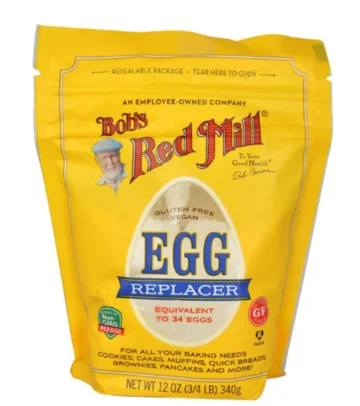

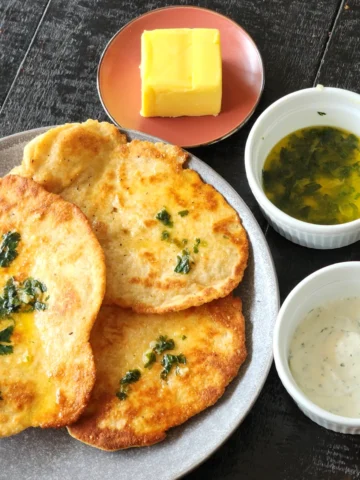
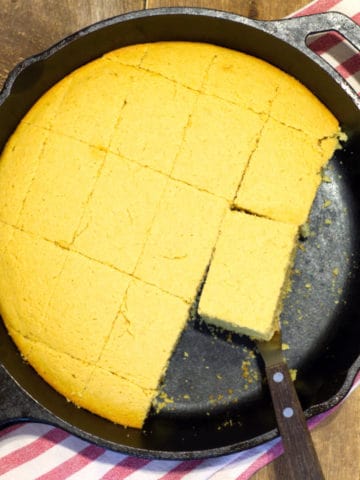

Comments
No Comments